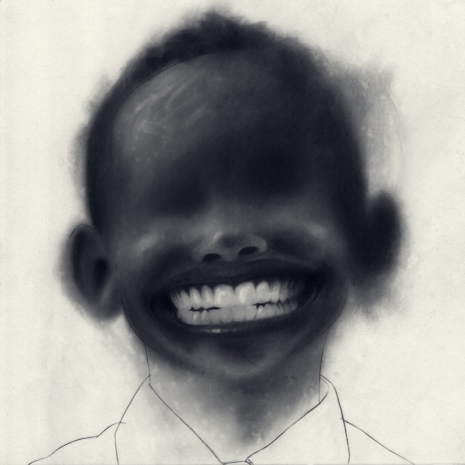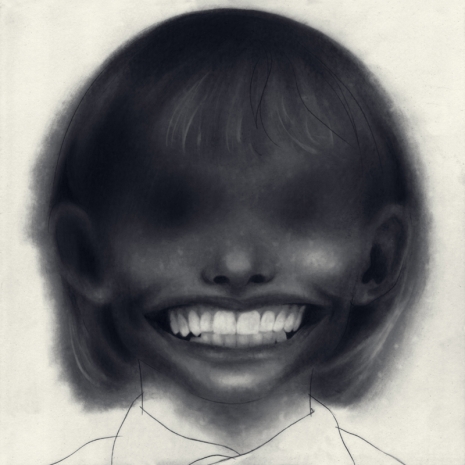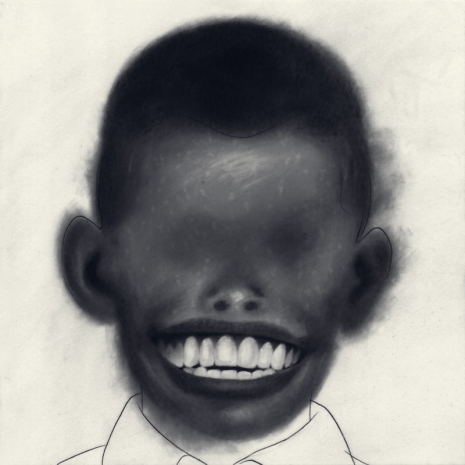
We can’t see their eyes. That’s what I find disturbing about artist Björn Griesbach’s series of portraits of smiling children. We can see their teeth—which are almost identical—but we can’t tell if these smiling kids are happy and genuine in their expressions or not.
It’s a case of smile over content.
Björn Griesbach is a German artist based in Hanover. He is best known for his startlingly original illustrations for those classic fairy tales by the Brothers Grimm, his cover designs to books by Herman Hesse, and his drawings for an edition of Jean Paul-Sartre’s novel Nausea.
Griesbach’s series of superbly creepy portraits Hollow Children question our response to that near universal expression of happiness, pleasure, and friendliness—the smile.
Should we respond to the children’s smile reflexively? Or are we a tad disturbed that these eerie offspring have had their eyes smudged out and we can no longer connect with their expressions?
Scientists can’t fully explain why we smile—but they do know smiling generally makes us feel better.
A genuine smile involves the use of those muscles around our eyes. This is called a Duchenne smile after the French neurologist who first identified the two distinct forms of smiling. This smile that involves raising the eyes is a genuine smile.
The second type of smile which does not involve any eye movement is the fake smile—or “Pan Am smile,” so-called because of its use by air stewardesses to greet passengers on and off flights. These days it may be a bit more difficult to ascertain a genuine smile with all the botox injections paralysing any facial expression.
See more of Björn Griesbach’s work here.


More smile over content, after the jump…





